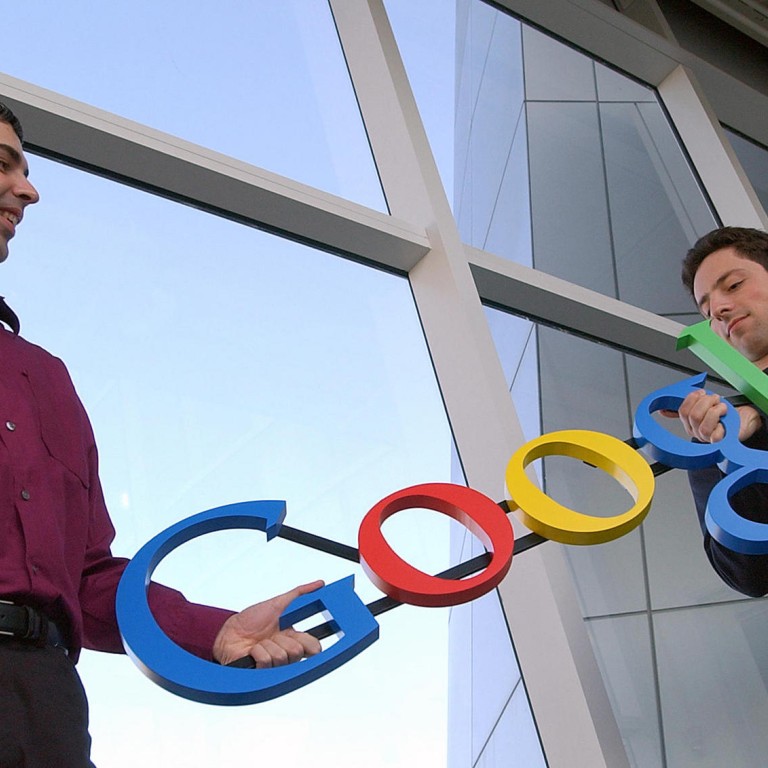
Google founders see a brave new world of data-driven health care
Self-driving cars are just the beginning for the pair that want to do to health care what they did to search, if they can survive the regulations
When Google's founders, Larry Page and Sergey Brin, sat down for a rare frank and open chat with the veteran technology venture capitalist Vinod Khosla, they admitted, among other things, that Google was interested in health care but scared of its intense regulation.
Page and Brin displayed their quite different personalities: Brin, the maverick and head of Google X - the company's semi-secret facility dedicated to making major technological advancements - and Page, the business-focused executive now CEO.
The dynamic duo have been together for 16 years, and described their relationship as a bit like an old married couple. "You don't get agitated about one little thing or another," said Brin. "We work through it."
Google started on the desktop with search but the company has rapidly expanded into other computing areas including mobile devices with Android smartphones and tablets, the new Android Wear smartwatches and Google Glass smartglasses.
For Brin and Page, computers and mobile devices just aren't efficient uses of time at the moment.
"I think the actual amount of knowledge you get out of your computer versus the amount of time you spend with it is still pretty bad. So I think our job is to solve that, and most of the things we're doing make sense in that context," Brin said.
Google sees search and intelligent information delivery as the key to changing that, getting to the information you need faster and more efficiently though machine understanding search topics and the answers to questions.
One of the advances that has powered intelligent information delivery for Google has been artificial intelligence (AI). The company hit the headlines at the beginning of the year with the acquisition of a British AI powerhouse called Deep Mind lead by former child chess prodigy and game programmer Demis Hassabis.
Google has several projects within AI going beyond its core search product, Brin said. "There's, for example, the brain project, which is really machine-learning focused. It takes input, such as vision. In fact, we've been using it for the self-driving cars.
"And then, there's more general intelligence, like the DeepMind acquisition that, in theory, we hope will one day be fully reasoning AI."
Google is acutely aware that with the rise of intelligent robots jobs could be at risk, as machines could replace humans in more industries than manufacturing.
In Page's view, robots and machines should be able to provide a "time of abundance" where everyone's basic needs could be met relatively easily. With a more productive or efficient society aided by machines you could "just reduce work time," Page said.
"Most people like working, but they'd also like to have more time with their family or to pursue their own interests." He added that by reducing the working week you could spread jobs across more people.
Google X's most high-profile project of the last three months has been a new, purpose-built prototype of its self-driving car. Brin hopes that it can be a "really dramatic change" society but only if we migrate away from car ownership.
"So much of our land in most cities, about 30 per cent to 50 per cent, is parking, which is a tremendous waste. Also, the roads themselves, which are both congested and take a lot of space are just unpleasant," Brin said. "So with self-driving cars, you don't really need much in the way of parking, because you don't need one car per person. They just come and get you when you need them."
Google's recent moves in heath, including Google Fit and a plethora of apps, have followed an increasing trend that has seen technology companies migrating towards the business of health and medicine.
The health market could be a larger business than both search and media - the health care industry in the US alone hit around US$3 trillion in 2013. While Brin sees great potential in health, regulation is a massive barrier.
"Generally, health is just so heavily regulated. It's just a painful business to be in," Brin explained. "I think the regulatory burden in the US is so high that I think it would dissuade a lot of entrepreneurs."
Along with Google Fit, the search giant launched a company called Calico, a biotechnology research firm that focuses on health and longevity.
"I am really excited about the possibility of data also, to improve health," Page said. "Imagine you had the ability to search people's medical records in the US … I imagine that would save 10,000 lives in the first year," Page said.
But with current US privacy legislation "that's almost impossible to do … I do worry that we regulate ourselves out of some really great possibilities that are certainly on the data-mining end."
